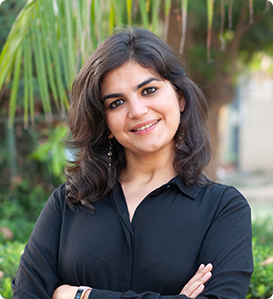
HOW TO STAY HEALTHY AT WORK?

When you think of dangerous jobs, you probably think of jobs in mining or in chemical plants and definitely not a job which requires writing emails in a cubicle. But office jobs can take a very big toll on your health, especially if you’ve adopted unhealthy habits. Want to feel more energized and vibrant and decrease your odds of getting a serious illness? Discover which office habits are the worst ones for your health and learn how to change them.
Sitting too much for a long time period is terrible for your body. Aches and pains are the least of your body problems — sitting for a long time can lead to an early death. You face a higher risk of muscular skeletal disorder, obesity, diabetes, cancer, heart disease and more, even if you regularly workout.
To avoid this, you should change positions every eight minutes, and take a two-minute “moving break” at least twice an hour. This will improve your posture and make you feel more energetic.
Eating mindlessly: You scroll through emails while you finish your lunch? You hardly taste the food, and an hour later, you don’t remember whether you ate at all. Doing this consistently will put your body in a stressful state and disrupt your metabolism. A few strategies to eat more mindfully will be – to pay attention to what and when you eat, chew every bite thoroughly, and pay attention to the smell, taste, and texture of your food. Don’t distract yourself with a book, magazine, or screen.
Once in a while, an unhealthy lunch may be more harmful than you think: Take a moment and reflect on how many times you indulge yourself in an unhealthy meal. A portion of the fast food usually has around more calories to another similar food of the same size, and it has a lot of oxidized fat, which increases the risk of heart disease. A simple solution to this is to always try and get lunch from home and when eating outside try to load on veggies and protein and always keep in mind the size of the portion you are consuming.
Commuting more than 10 miles by car everyday: I know its difficult to believe that travel and health are related. It can increase your risk of depression, anxiety, and general misery. Long commutes can also lead to poor sleep, higher cholesterol, and increased risk of depression. Try to avoid commutes whenever you can. Try to have meetings mid-way and try to break your commutes by stopping in between or planning meetings on your way.
Fuelling yourself with Coffee alone: Drinking coffee without food can wreak havoc on your digestive system and may disrupt your body’s release of the stress hormone cortisol. For the most sustained energy, opt for a breakfast rich in protein, vegetables, and healthy fats, such as an omelette or toast with hummus, spinach, and avocado. You can still enjoy your beloved cup of coffee. But it may be optimal to wait a few hours after waking to get your caffeine fix.
Stressing about work demands: Job pressures and fears are a leading cause of stress for most people. Job stress may be common, but don’t ignore it. Prolonged stress at work can lead to serious health problems. You may feel trapped in a miserable situation such as a high-pressure environment where you’re constantly overwhelmed or in a toxic workplace where colleagues engage in mean gossip. Chronic work stress is known to contribute to serious mental and physical illnesses, including depression, heart attacks, strokes, and immune deficiencies.
If you’re routinely stressed out at work, commit to making some changes such as get enough sleep, exercise, eat healthy meals and adopt stress-relieving rituals such as going for a walk. Talking to your manager and setting up healthy boundaries at work can also help.

Dr. Priyamvada Dua
(Consultant)
Dr. Priyamvada Dua
Consultant- Mindfulness Based Cognitive Therapy
Dr. Dua pursued her entire higher education in the United Kingdom. After obtaining her Masters degree in Neurosciences from Imperial College London she did her PhD in Neuropsychiatry from BARTS and the London School of Medicine and Dentistry. She has worked extensively on an autoimmune model of movement disorders and psychiatric conditions like OCD, Depression, ADHD and Autism as part of European Multicentre Tics in Children Studies (EMTICS). She has been trained in a range of psychotherpaies like cognitive behavioural therapy, Gestalt and Emotion-Focussed Therapy.
Dr. Dua has been honored with numerous awards and rnethods, Professor Mary Robertson Award for research contribution in Tourette’s Syndrome, Honorary Consultancy at Microbiology, Virology and Infection Control Laboratory, Great Ormond Street Hospital for Children, London.
After her extensive research experience Dr. Dua followed her passion and came to India to explore the role of art, spirituality and other creative mediums as alternative therapies for neurological and psychiatric disorders. Her vision was to amalgamate Western education with Eastern spiritual practices. She got trained in hypnotherapy, mindfulness practices, sound healing, Reiki, yoga science and numerous other complimentary methodologies. Her expertise now lies in providing cognitive therapies coupled with mindfulness and other holistic practices for treatment of anxiety, depression,addictions, phobias and mind-body illnesses.
 Call Now
Call Now
 info@metabalancehealthcare.com
info@metabalancehealthcare.com
